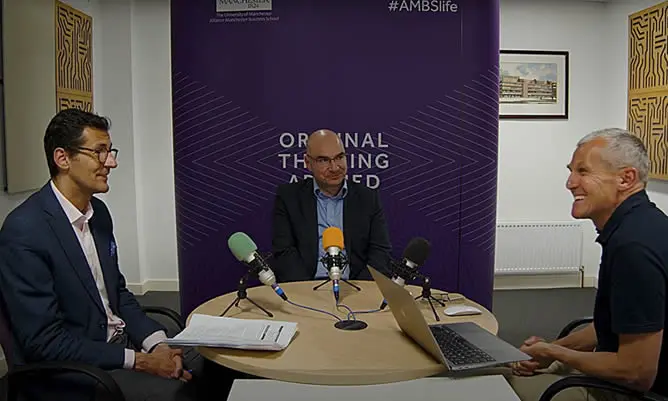Accounting and Finance Research
Our research philosophy is underpinned by a commitment to the development of the accounting and finance discipline.
Our pursuit of knowledge development encompasses both fundamental theoretical advancement and innovations in research methodologies. It also incorporates a direct concern with the institutional and contextual influences shaping accounting and finance practice. Our academics frequently publish in leading international journals while also serving major editorial roles.
Our research themes
Our research themes are notable for their international coverage and relevance, reaching out to address a wide range of accounting and finance issues in both developed and developing nation contexts.
Asset pricing
Our asset pricing research appears in world-leading journals in both finance and economics. Theoretical and empirical output encompasses topics including:
i) the role of real option models, financial uncertainty and macroeconomic risk factors in determining cross-sectional stock returns;
ii) the impact of risk, uncertainty and non-expected utility preferences on the macroeconomy and financial markets;
iii) the analysis of funding flows, trading costs and liquidity risk on investment performance and
iv) the development and application of cutting-edge econometric methods in estimating and comparing structural asset pricing models, with a particular focus on modelling jumps and regime switching.
Our research contributions improve our understanding of the fundamental risk factors driving the pricing dynamics of major asset classes, including stocks, bonds and derivatives. Our work generates practitioner impact and practice-driven research, and attracts significant external funding. It has been extensively cited in world-elite journals and policy documents as well as a Nobel Prize acceptance speech.
Our faculty have embarked on collaborative research visits to leading international Universities, including Cornell, Purdue, Konstanz, Toronto, among others.
Auditing and accountability
Our auditing and accountability work focuses on the nature of audit practice and associated audit standard setting and oversight systems, audit reform in transitional economies, the regulation of the accounting profession, and ethical governance.
Recent and on-going research studies the evolution of contemporary audit methodologies, audit innovation and the future of audit, the role of advocacy groups in enhancing corporate accountability, accounting for externalities and human rights, and the ‘worth’ attached to fair value accounting. Research also addresses different NGO accountability systems and their development in different institutional arenas, the nature and impact of sustainability assurance, and the evolution of non-financial reporting innovations such as integrated reporting.
A public sector research focus is evident in a series of studies examining the accountability of public private partnership arrangements and the impact of broader public accountability reforms. Staff members have been guest editors for several internationally excellent journals and have strong links with national and international organisations.
Corporate finance and corporate governance
Our corporate finance and corporate governance work is very diverse. Our corporate finance research covers the areas of venture capital, initial public offering-related issues and their effects on corporate outcomes, convertible debt and seasoned equity offerings. It further covers corporate policies such as capital structure, cash holdings, mergers and acquisitions, payout, investment, and risk taking.
Corporate governance research focuses on managerial characteristics and compensation, as well as shareholder incentives. Some of the above research areas include award-winning studies on financial flexibility and governance regulations.
Overall, these areas are at the interface between finance and law, labour economics, asset pricing, CSR, ethical finance and other business disciplines. Group members publish regularly in top-tier finance journals and leading outlets in corporate finance, generating interest from practitioners, central banks (ECB and Banca d’Italia) and the media (BBC, FT, Guardian; Columbia, Harvard and Oxford Law School Forums).
Several members hold visiting positions at international institutions (Arizona, Cornell, IDC, and New South Wales), and are active on editorial boards of major interdisciplinary journals.
Management accounting and information systems
Our scholars focus on processes of change in accounting practices and in information systems, including the implementation of new systems, techniques and practices, emphasising their political, social and behavioural impacts and construct process models of change, exploiting holistic empirical case studies.
Some group members also publish extensively on methodological issues in accounting research. Staff members hold visiting posts at a variety of international universities and chair international research committees.
Market-based accounting research (MBAR)
These theme includes regulations and standards, market information efficiency, valuation relevance, debt contracting, accounting conservatism, corporate disclosure, analyst forecasts, institutional effects, CSR disclosure, and textual analysis.
Group members hold editor positions in internationally excellent and world-class accounting journals, including Accounting and Business Research, Journal of Business, Finance, and Accounting, and Review of Accounting Studies.
PhD student graduate placements include well-known universities around the world, such as Booth School of Business, University of Chicago, USA, Fudan University, Shanghai, China, and London School of Business, UK.
Centre for the Analysis of Investment Risk
The Centre for the Analysis of Investment Risk (CAIR) sits within the Accounting and Finance Division. It encompasses research relevant to the professional needs of private, institutional and corporate investors in both domestic and international markets. Its research combines theoretical rigour with practical policy relevance.








